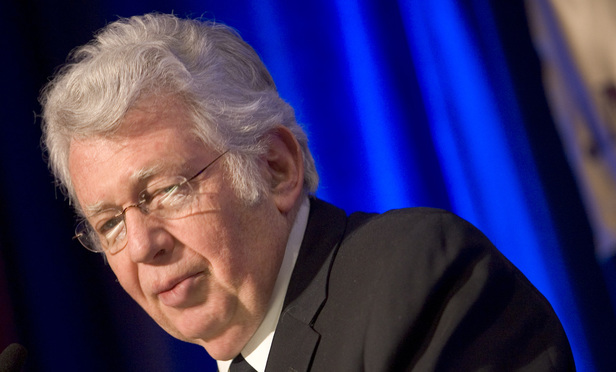Asked how the CFPB would respond to the decision, a spokesman gave no clear indication of whether the agency would appeal or draft a new subpoena addressing the court ruling.
“We have the court’s decision and understand it, and we will make careful efforts to conform to the ruling in our further investigations, whether in this case or any other case,” CFPB Director Richard Cordray said in a statement.
Venable partner Allyson Baker, a former CFPB enforcement lawyer, represented the accrediting council. Venable said Friday’s decision was the “first time in decades that a federal appeals court has struck down an administrative subpoena issued by the federal government.”
Sentelle heard the case with Judges Karen LeCraft Henderson and Robert Wilkins. At oral argument in February, Sentelle was particularly critical of the CFPB. Sentelle at one point dressed down CFPB attorney Lawrence DeMille-Wagman after he appeared to talk over the judge. When Sentelle asked whether a college accreditor could be considered a “covered person” subject to the CFPB’s enforcement authority, Sentelle answered his own question: “No. No, OK. The answer would be ‘no,’” he said.
DeMille-Wagman defended the subpoena, arguing that the agency’s investigative demands are not limited only to those potentially subject to an enforcement action. “The bureau,” he said, “has authority to obtain information from those who have it” regarding a potential violation of the law.
The D.C. Circuit’s panel decision on Friday upheld an April 2016 ruling by U.S. District Judge Richard Leon of the District of Columbia, but it did so on narrow grounds and with a softer tone. “Although it is understandable that new agencies like the CFPB will struggle to establish the exact parameters of their authority, they must be especially prudent before choosing to plow [headlong] into fields not clearly ceded to them by Congress,” Leon wrote then.
Sentelle said the panel was faced with a single question: “Did the CFPB have the statutory authority to issue the CID in question?”
“Because we can easily answer the issue on a narrower basis, and because the invalidity of the CID makes it unnecessary to reach the broad determination of the bureau’s authority to investigate the area of accreditation at all, we will not reach the broad question answered by the district court,” he wrote.
In a footnote, the D.C. Circuit panel left open the possibility that the CFPB could craft a more specific subpoena that might pass judicial review. “We express no opinion as to whether a revised CID” should be enforced, the panel wrote.
Since Leon’s ruling last year, the CFPB has turned to the courts several times to enforce administrative subpoenas. A federal district judge in Detroit in February ordered Harbour Portfolio Advisors—an investment firm that purchased foreclosed properties in bulk and resold them through high-interest installment contracts known as “contracts for deed”—to comply with a CFPB subpoena.
The CFPB has cited that opinion in Philadelphia federal court as it fights to enforce a separate subpoena issued to the financial services company J.G. Wentworth LLC.



